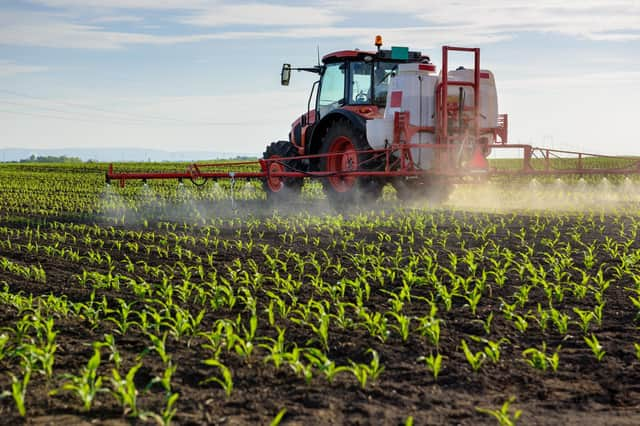Yorkshire farmers waiting for Government to catch up - Lucinda Douglas


The current operating environment for both livestock and arable farms remains challenging due to a variety of inter-related factors. A combination of Brexit and Covid has had a debilitating impact on labour supply, as well as throughout supply chains, and the farming sector has not been left unscathed.
The effects are felt, not only on traditional farming, but also rural businesses that have diversified into the tourism and hospitality sectors.
Advertisement
Hide AdAdvertisement
Hide AdAcross England, total income within the agriculture industry fell to £2.6bn in 2020 – a drop of £1.1bn when adjusted for inflation. And, according to the latest Defra figures, farming income fell by a staggering 48 per cent in Yorkshire.
In addition, input costs have soared on items such as fertilisers which have more than doubled in price over the last year. Whilst high commodity prices in some sectors will have helped cushion the blow, many farms operate on small profit margins.
The shape of future farming support is crucial to ensure that such activity is sustainable and profitable. Speaking at the CLA’s Rural Business Conference, Environment Secretary George Eustice announced more detail on the Sustainable Farming Incentive (SFI) payment rates, marking the start of a move away from the Basic Payment Scheme and farmers should be considering how they will replace this funding as it phased out.
Given the complexity of the agricultural transition, it makes sense that Defra is taking a phased approach and it needs to keep communicating that bigger picture.
Advertisement
Hide AdAdvertisement
Hide AdThe Government must fill in the remaining details of its blueprint as soon as possible, reconfirming its commitment to an ambitious new policy that unleashes the potential of farmers and land managers to play their part in delivering on the net zero and ecological agenda.
This means using the SFI to incentivise gathering data on environmental baseline, creating long-term and holistic land management plans and encouraging farmers to design their farming system around the climate and environmental benefits they can deliver, alongside producing healthy, nutritious food. With many farmers already doing this and the supply chain moving in the same direction, it’s past time the Government caught up.
Add to the mix, Storm Arwen which had devastating impacts in North Yorkshire, and further afield in the North East and Cumbria. It was heart-warming to see how local communities, businesses and farmers stood together voluntarily to be super-resilient in the face of adversity, especially in rural areas.
However, some of the damage to powerlines could have been avoided if the grid was sufficiently maintained via, for instance, tree management in the vicinity of power lines. The CLA has called on both utility companies and government to be more proactive in responding to similar storms in future – it cannot simply be left to the fighting spirit of local people.
Advertisement
Hide AdAdvertisement
Hide AdHopefully 2022 will see us depart from the gloomy period since the onset of the pandemic.
My wishes for this year are for:
- A stabilising Covid situation to aid our rural economy and national economy, in addition to our personal well-being and health.
- Certainty and more detail on future farming support. More resilient infrastructure and support for people who live and work in rural areas.
- Resolution of supply chain and labour market issues.
- A greater focus and appreciation on the UK’s self-sufficiency with regard to food security.
Advertisement
Hide AdAdvertisement
Hide AdWe look forward to working with government and other rural bodies to ensure the recovery of, and future resilience of our rural economy. Our rural communities and the businesses that operate within them are often at their strongest when faced with adversity. I sincerely hope 2022 is less turbulent and more prosperous for us all, and we keep well and enjoy good health.
Lucinda Douglas is director of CLA North.
